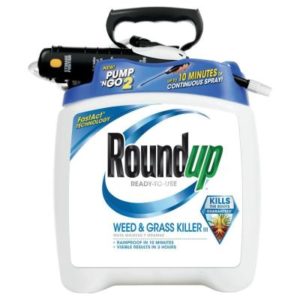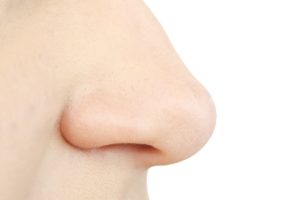 A problem with the Western diet that most of us eat is that it is low in fiber. A diet low in fiber and large amounts of ultraprocessed foods is suspected to play a role in the increasing incidence of intestinal bowel diseases (IBD) in the US and Canada.
A problem with the Western diet that most of us eat is that it is low in fiber. A diet low in fiber and large amounts of ultraprocessed foods is suspected to play a role in the increasing incidence of intestinal bowel diseases (IBD) in the US and Canada.
A recent study, which was presented at the United European Gastroenterology Week 2025 found that a diet rich in fermentable fiber (specifically inulin and beta-glucan) may lower the risk of developing Crohn's disease. Each fiber type was associated with a 30% lower risk of developing Crohn's disease.
On the other hand, a lower intake of these fibers was linked to impaired intestinal permeability and inflammation.
Beta-glucan is a fiber found in cereal grains such as oats, barley, rye, sorghum, wheat, and mushrooms, seaweed, and yeast. It is a soluble fiber associated with a number of additional health benefits, such as decreasing inflammation, improve blood sugar management, and lowers cholesterol levels.
Inulin is a prebiotic fiber found in some plant foods, such as garlic, leeks, onions, asparagus, chicory root, Jerusalem artichokes, dandelion greens, apples, and bananas.
There are different fibers in different foods - so a variety of fiber foods is optimal for our health. Fiber is found in whole grains, seeds, nuts, legumes, fruits, and vegetables.
From Medscape: Fermentable Fiber May Lower Crohn’s Disease Risk
Increased intake of two fermentable fibers, inulin and beta-glucan, was associated with a significantly reduced risk of developing Crohn’s disease (CD) among first-degree relatives of patients with the condition. ...continue reading "Certain Types Of Fiber May Lower the Risk of Developing Crohn’s Disease"

 Some more good news on the peanut allergy and other food allergy front. In 2015, medical advice changed to : Yes, please introduce tiny amounts of foods such as peanuts and eggs in the first year of life to prevent food allergies. And...since then, the incidence of food allergies, including peanut allergies, in children has dramatically gone down when that advice is followed.
Some more good news on the peanut allergy and other food allergy front. In 2015, medical advice changed to : Yes, please introduce tiny amounts of foods such as peanuts and eggs in the first year of life to prevent food allergies. And...since then, the incidence of food allergies, including peanut allergies, in children has dramatically gone down when that advice is followed.

 Remember when back in 2015 the IARC (International Agency for Research on Cancer) said that the pesticide glyphosate (the active ingredient in Roundup) is a probable human carcinogen (cancer causing)? And the American chemical industry and FDA pooh-poohed that? Well, there have been a number of studies since then finding that yes, glyphosate results in tumors and other health harms, and is cancer causing (carcinogenic).
Remember when back in 2015 the IARC (International Agency for Research on Cancer) said that the pesticide glyphosate (the active ingredient in Roundup) is a probable human carcinogen (cancer causing)? And the American chemical industry and FDA pooh-poohed that? Well, there have been a number of studies since then finding that yes, glyphosate results in tumors and other health harms, and is cancer causing (carcinogenic). Millions of us have had a least one COVID infection. Many suffered a loss of smell during the infection. A recent
Millions of us have had a least one COVID infection. Many suffered a loss of smell during the infection. A recent  Over and over studies have found links with certain toxic chemicals (some pesticides and the chemical trichloroethylene) and Parkinson's disease. Another recent
Over and over studies have found links with certain toxic chemicals (some pesticides and the chemical trichloroethylene) and Parkinson's disease. Another recent  There has been lots of research in the past decade over the benefits of eating a diet rich in fruits, vegetables, whole grains, nuts, and legumes, especially a Mediterranean style diet. Health benefits include lowering chronic inflammation and a lower incidence of a number of chronic diseases, including type 2 diabetes.
There has been lots of research in the past decade over the benefits of eating a diet rich in fruits, vegetables, whole grains, nuts, and legumes, especially a Mediterranean style diet. Health benefits include lowering chronic inflammation and a lower incidence of a number of chronic diseases, including type 2 diabetes. The US government would like to shut the Mauna Loa observatory in Hawaii down because it measures levels of atmospheric CO2, a measure of climate change. Well, unlike the US government, the rest of the world is very, very concerned about increasing CO2 levels in our atmosphere, and what increasing levels of greenhouse gases are doing to our climate and environment.
The US government would like to shut the Mauna Loa observatory in Hawaii down because it measures levels of atmospheric CO2, a measure of climate change. Well, unlike the US government, the rest of the world is very, very concerned about increasing CO2 levels in our atmosphere, and what increasing levels of greenhouse gases are doing to our climate and environment.